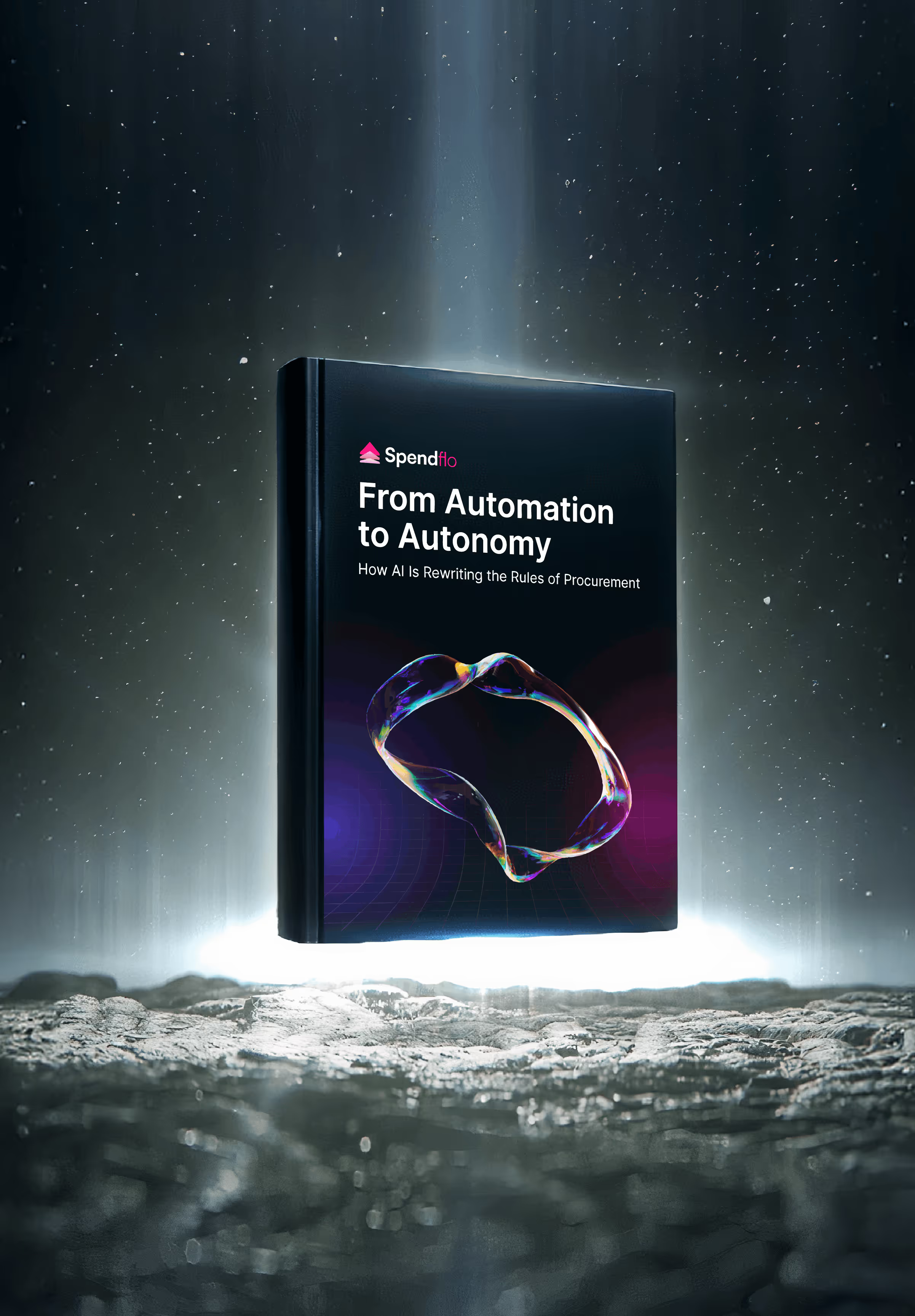

AI in Finance: Use Cases, Benefits & Future Trends

AI in Finance: Use Cases, Benefits & Future Trends
This blog covers how AI is reshaping corporate finance - from automating workflows to enhancing forecasting and fraud detection.


"Nearly 80% of financial executives believe AI will be essential to their organization’s success within the next three years" (EY, 2024). Yet many finance teams still struggle with inefficiencies, compliance risks, and manual processes that slow growth.
This makes AI in finance one of the most important conversations today not just for automation, but for sharper forecasting, proactive risk management, and the ability to drive measurable ROI across the business.
What is AI in Finance
AI in finance is the use of technologies like machine learning and predictive analytics to automate and improve financial operations. Instead of relying on manual work or scattered spreadsheets, AI handles routine tasks such as reconciliations, compliance checks, and expense tracking. It also identifies trends in data, flags anomalies, and forecasts future performance with greater accuracy.
For finance leaders, this means less time spent on repetitive tasks and more time on strategic decision-making. With AI, teams gain real-time visibility into budgets, vendor spend, and SaaS usage—helping them reduce waste, cut costs, and drive faster ROI.
Strategic Importance of AI in Corporate Finance
AI adoption in corporate finance is accelerating as CFOs seek to automate tasks, improve forecasting, and make faster, data-driven decisions that enhance strategic agility and cost control.
Here are the key ways AI is shaping corporate finance today:
Adoption of AI by finance leaders
Finance leaders are rapidly integrating AI to modernize operations and respond to market volatility. AI is no longer experimental - it’s becoming foundational to financial strategy. CFOs view it as a core enabler of efficiency, agility, and competitive advantage.
Impact on decision-making and forecasting
AI enhances forecasting accuracy by analyzing large volumes of historical and real-time data. It helps finance teams move from static annual plans to continuous forecasting, improving responsiveness to market shifts and enabling faster strategic decisions.
AI in day-to-day finance operations
From automating routine tasks like expense approvals to detecting duplicate invoices, AI is streamlining daily finance functions. This reduces manual work, lowers the risk of human error, and allows teams to focus on high-impact analysis rather than repetitive tasks.
Growth of AI-powered finance tools
A wide range of finance platforms now offer AI capabilities like predictive dashboards, smart approvals, and anomaly detection. These tools democratize access to analytics and reduce the need for specialized data teams in finance departments.
CFO priorities driving AI adoption
CFOs are adopting AI to drive productivity, control costs, and uncover actionable insights. With pressure to do more with less, AI enables leaner finance teams to operate strategically, meet compliance standards, and support company-wide growth initiatives.
Challenges and Ethical Considerations of AI in Finance
AI Bias and Fairness
One of the most pressing AI ethical concerns is bias in financial models. If algorithms are trained on incomplete or skewed data, they can deliver unfair or inaccurate results. This not only undermines trust but also exposes businesses to reputational and regulatory risk.
Data Quality and Governance
Strong data governance in finance is critical. Without clean, well-managed data, AI systems may generate unreliable insights. Poor oversight of data flows can limit decision-making quality and highlight the limitations of AI in finance.
AI Talent Shortage
There is a growing AI talent shortage in finance. Few professionals combine financial expertise with advanced AI knowledge, making it difficult for organizations to scale adoption effectively.
Regulatory Compliance
Keeping pace with AI regulatory compliance is another challenge. Laws around responsible AI use continue to evolve, and finance teams must ensure systems meet these standards to avoid penalties and maintain trust.
Transparency and Explainability
AI tools must provide clarity on how decisions are made. Without transparency and explainability in AI decisions, leaders may struggle to justify outcomes, creating barriers to wider adoption.
AI Applications in AP, Procurement & FP&A
AI is reshaping the financial sector by automating workflows, improving accuracy, and enabling smarter decision-making. Beyond routine processes like accounts payable and procurement, AI is now driving innovation in securities trading, credit evaluation, insurance, cybersecurity, and wealth management.
AI in Investment and Securities Trading
AI in securities trading helps firms process vast amounts of market data in real time. By spotting patterns and predicting price movements, AI-powered algorithms execute trades faster and with more precision than humans, giving investors a competitive edge.
AI for Credit Risk and Underwriting
Banks now use AI credit risk evaluation models that go beyond traditional financial history. These systems analyze alternative data—such as transaction behavior or digital activity—to make faster, fairer lending decisions and streamline underwriting.
AI for Insurance and Claims Processing
In insurance, AI claims processing automates document reviews, fraud detection, and settlement approvals. This reduces turnaround time, improves accuracy, and enhances the customer experience.
AI-Driven Cybersecurity in Financial Institutions
Financial institutions face constant threats of fraud and cyberattacks. Cybersecurity AI in finance strengthens defenses by detecting unusual activity, blocking suspicious transactions, and responding to risks in real time.
AI-Powered Customer Credit Scoring
Traditional credit scoring can overlook entire segments of potential borrowers. AI credit scoring with alternative data—such as utility payments or online behavior—offers a more inclusive way to evaluate creditworthiness while expanding financial access.
Robo-Advisors and Wealth Management
Robo-advisors with AI in finance use algorithms to deliver personalized investment recommendations at scale. They lower costs, democratize wealth management, and give investors real-time portfolio guidance without relying solely on human advisors.
AI vs. RPA in Financial Workflows
AI and RPA are both transforming financial workflows, but they serve different purposes - RPA automates rule-based tasks, while AI enables intelligent decision-making through data analysis and learning.
AI and RPA are not mutually exclusive - in fact, their combination creates a powerful framework known as intelligent automation. RPA is ideal for handling repetitive, rule-based tasks like invoice matching or generating reports, freeing up finance teams from time-consuming manual work. Meanwhile, AI complements these tasks by analyzing data, identifying patterns, and providing predictive insights that guide strategic decisions.
When deployed together, AI and RPA bring both structure and intelligence to financial operations. RPA ensures consistency and speed in standardized processes, while AI introduces flexibility and adaptability where decision-making is needed. This synergy enhances operational efficiency, enabling finance teams to operate with greater accuracy, agility, and insight - enhancing internal workflows and customer experiences. As organizations scale, intelligent automation becomes essential to managing complexity and driving continuous improvement in finance functions.
Predictive Analytics for Finance Budgeting
Predictive analytics uses AI to analyze historical and real-time data, enabling finance teams to build smarter, more accurate budgets that adapt quickly to changing business conditions.
Here’s how predictive analytics is reshaping the budgeting process:
Data sources used in predictive budgeting
AI pulls data from internal systems like ERP and CRM, as well as external market data, to understand trends and drivers of financial performance. This creates a more complete view of expected revenues, expenses, and risks.
Forecast accuracy improvement with AI
Unlike static budgeting, predictive models learn from patterns and anomalies in real time. They adjust assumptions as new data arrives, improving accuracy and helping finance teams make informed decisions.
Dynamic budget adjustments through AI
AI enables rolling forecasts that automatically update based on current business conditions. This allows finance leaders to reallocate resources faster, prevent overspending, and seize opportunities with more agility.
Scenario modeling using AI tools
AI can simulate multiple financial scenarios using historical data and current market trends, helping organizations prepare for best-case, worst-case, and most-likely outcomes. This enhances strategic planning and supports resilient decision-making under uncertainty.
AI’s role in preventing budget overruns
By continuously monitoring actual vs. projected spending, AI flags budget variances early. This enables proactive course correction, minimizes waste, and ensures financial discipline across departments.
Real World Case Studies Of AI In Finance
Leading platforms are proving that AI in finance is more than theory—it delivers measurable ROI. From faster invoice processing to AI fraud prevention savings, companies are seeing real efficiency and cost benefits. These AI in finance case studies highlight how automation improves workflows, reduces errors, and drives smarter decision-making across finance operations.
AI Applications in Tipalti’s Finance Workflows
Tipalti integrates AI to capture invoice data, match it with purchase orders, and validate entries in real time. It also applies AI for tax compliance, currency conversion, and automatic reconciliation—removing manual work from the payables cycle and demonstrating clear AI efficiency improvements in finance.
Examples from Leading Fintechs
Coupa uses AI to analyze spend patterns and recommend savings opportunities, while Airbase applies machine learning to detect policy violations and streamline recurring approvals. Oracle NetSuite embeds predictive AI into FP&A tools, helping CFOs forecast more accurately and take proactive action.
Cost and Time Savings Achieved
The ROI is clear: Tipalti customers report an 80% reduction in invoice processing times, while Coupa users save millions by acting on AI-driven recommendations. Across these case studies, teams consistently report AI ROI in finance through faster workflows, fewer errors, and lower labor costs.
AI Use Cases in Vendor Management
AI also strengthens vendor management by verifying credentials, monitoring payment history, and flagging risky behaviors. Tipalti, for instance, validates bank account details and detects duplicate or suspicious vendor records—improving fraud prevention and overall control.
Lessons from Real-World Implementations
The most successful rollouts began with a narrow focus—like invoice automation or vendor risk scoring—before scaling across functions. Strong collaboration between finance, IT, and procurement teams proved critical. The key takeaway: treat AI as a long-term strategic partner, not just a technology upgrade.
Leading AI Tools and Platforms for Finance Professionals
Finance teams today have access to a growing ecosystem of AI tools for finance that go beyond automation to deliver real-time analysis and decision support. From generative AI in finance for reporting to AI copilots for CFOs, these solutions are reshaping how professionals handle everything from forecasting to compliance.
Specialized Financial AI Platforms
Platforms like AlphaSense and Kensho apply advanced AI models to sift through market data, earnings transcripts, and regulatory filings. These financial AI platforms help analysts identify trends, track competitor movements, and make faster investment decisions with greater accuracy.
Generative AI for Reporting and Analysis
Generative AI in finance is transforming reporting by automating narrative generation for earnings summaries, variance reports, and investor updates. Instead of spending hours writing commentary, teams can instantly generate clear, data-backed explanations while maintaining accuracy and consistency.
AI Copilots for CFOs and Finance Leaders
Emerging AI copilots for CFOs act as virtual assistants that can answer finance queries, model scenarios, and recommend cost-saving opportunities. By surfacing insights on spend, cash flow, and risk exposure, these copilots reduce decision-making friction and give leaders a strategic edge.
Practical Applications of AI Automation in Finance
Practical AI automation in finance is already streamlining workflows:
- Automating invoice approvals and reconciliations
- Running predictive models for cash flow forecasting
- Enhancing fraud detection with anomaly alerts
- Supporting compliance by flagging irregularities in transactions
- The bottom line: AI is no longer just an add-on. It’s becoming an integral partner in how finance professionals analyze data, manage risk, and drive ROI.
Fraud Detection with AI Technologies
AI is playing a critical role in helping finance teams proactively detect risks and prevent fraud. With financial transactions growing in volume and complexity, manual methods are no longer sufficient. AI offers real-time monitoring, anomaly detection, and pattern analysis that can flag suspicious activity before it becomes a problem. Organizations are increasingly relying on these technologies to protect their financial integrity.
AI for real-time fraud detection
AI systems can scan thousands of transactions in real time to identify unusual behavior. Whether it’s duplicate payments, irregular timing, or unexpected vendor changes, AI algorithms detect issues instantly. This continuous monitoring helps finance teams act quickly and prevent losses before they escalate.
Pattern recognition in financial anomalies
By learning from past data, AI recognizes subtle patterns that signal fraud or risk. It spots irregularities that humans might miss - like altered vendor names or abnormal invoice amounts - flagging potential risks before they escalate. Over time, the AI becomes more accurate at identifying outliers and suspicious activity.
Using AI to prevent payment fraud
AI-powered payment systems can verify account details, detect mismatches, and flag high-risk vendors automatically. These tools ensure that funds are transferred only to verified, trusted sources - reducing the chance of fraudulent or misdirected payments. Some tools even pause suspicious transactions until manually reviewed.
Compliance monitoring with AI tools
AI doesn’t just stop fraud - it also helps enforce compliance. In the financial services industry, tools monitor for adherence to internal policies, contract terms, and financial regulations. They can also keep records of all actions taken, making audits faster and more transparent. This reduces the risk of penalties or governance failures.
Case studies of fraud prevented by AI
Companies using AI in accounts payable have reported massive reductions in payment errors and fraud exposure. One large enterprise using Tipalti’s AI features flagged over $500,000 in duplicate or invalid payments in a single quarter. These real-world wins demonstrate the power of AI in securing financial workflows.
Ethical Concerns in Financial AI
As AI becomes more embedded in finance, ethical risks grow. Finance teams must balance innovation with responsibility - ensuring AI is fair, transparent, and compliant. Without proper governance, AI can unintentionally reinforce bias or violate regulations.
Bias and fairness in AI models: AI models trained on biased data can lead to unfair decisions in credit scoring or vendor evaluation. Ensuring diverse, representative datasets is key to avoiding discriminatory outcomes.
Transparency in AI-driven decisions: Black-box models can make it difficult to explain how a decision was made. In finance, this lack of clarity can be risky during audits or compliance reviews.
Regulations impacting financial AI: Regulatory frameworks like GDPR and upcoming AI laws in the EU require transparency, auditability, and accountability in financial algorithms - making compliance non-negotiable.
Data privacy in AI implementations: AI relies on vast data, which includes sensitive financial and personal information. Strong encryption, access controls, and anonymization are necessary to maintain privacy standards.
Building ethical AI governance frameworks: Establishing oversight committees, clear audit trails, and model validation processes can ensure financial AI operates within ethical and legal boundaries, reducing organizational risk.
Getting Started with AI in Your Finance Stack
Starting small and scaling smart is the best approach to AI adoption. With the right tools, integration plan, and team alignment, finance leaders can unlock early wins and long-term value.
Assessing current AI readiness: Begin by evaluating your existing finance processes. Identify bottlenecks, repetitive tasks, and areas where data is already available to fuel AI.
Choosing finance-friendly AI tools: Select tools that are designed for finance use cases - such as AP automation, predictive budgeting, or risk detection. Avoid generic platforms with limited finance capabilities.
Steps to integrate AI with ERP systems: Ensure compatibility with existing ERPs like NetSuite or SAP. Plan for data mapping, API access, and testing phases to minimize disruption.
Training teams on using AI tools: Success depends on user adoption. Offer training programs that enhance the employee experience through practical use cases, and ensure finance teams are confident using new systems - supporting both mental and physical health in high-pressure finance roles.
Measuring ROI from finance AI projects: Track success through time savings, error reductions, and cost avoidance. Tie results to key business metrics to justify expansion or investment in broader AI projects.
Future Trends in AI for Finance
AI is evolving rapidly, and the next wave will empower finance teams to work with greater speed, accuracy, and strategic foresight. These AI finance future trends highlight where the industry is headed.
AI Regulatory Landscape and Governance
As AI adoption grows, so does the demand for stronger oversight. AI regulations in finance will require companies to adopt governance frameworks that ensure fairness, transparency, and accountability in automated decision-making. Finance leaders should prepare for stricter compliance standards and audit-ready AI systems.
Autonomous Financial Operations
The move toward autonomous financial operations is accelerating. AI will handle tasks like auto-approvals for routine expenses, anomaly detection, and self-correcting forecasts that adjust in real time. This will free finance teams from manual bottlenecks and allow them to focus on higher-value strategy.
Personalized AI Finance Dashboards and Experiences
Dashboards are becoming smarter and more user-specific. Personalized finance AI will tailor views to each role—whether CFO, controller, or procurement head—surfacing the most relevant KPIs and trends automatically. This personalization helps teams move from static reporting to proactive, data-driven decision-making.
How Spendflo Helps with AI in Finance
Finance leaders know the stakes are high manual processes, uncontrolled SaaS spend, and poor visibility into AI tools can erode budgets and delay growth. Without the right systems, adopting AI often creates more complexity instead of clarity.
That’s why companies like [Insert Case Study Example: e.g., Acumatica saved $500K and achieved 3x ROI using Spendflo’s AI-enabled procurement platform] trust Spendflo. By consolidating spend, benchmarking vendors, and handling contract negotiations, Spendflo turns AI adoption into measurable savings and faster decision-making.
The risk of overspending and inefficiencies will only grow as finance teams scale. But with Spendflo, you get guaranteed savings, centralized control, and AI procurement done for you.
Ready to take the complexity out of AI adoption? Book your demo with Spendflo today.
Frequently Asked Questions on AI in Finance
What are the benefits of AI in finance?
AI helps finance teams save time, reduce manual work, and make better decisions. It improves forecasting accuracy, streamlines operations like accounts payable, and detects risks such as fraud or policy violations before they escalate.
How can finance teams implement AI without high costs?
Start small with AI features in existing finance tools or platforms. Focus on high-impact areas like invoice automation or forecasting. Use vendors that offer AI as part of their solution to avoid heavy upfront investments.
Is AI safe for sensitive financial data?
Yes, most AI platforms follow strict data privacy protocols. Look for tools that use encryption, access controls, and compliance certifications (like SOC 2, GDPR). Always evaluate the vendor’s security framework before implementation.
How is AI different from traditional automation in finance?
Traditional automation (like RPA) follows fixed rules. AI, on the other hand, learns from data and adapts over time. This makes it better suited for tasks that require analysis, prediction, or anomaly detection.
What are the main challenges of using AI in finance?
The biggest challenges include data quality, integration with legacy systems, lack of skilled staff, and concerns about transparency. Start with clear goals and involve cross-functional teams to ensure successful AI adoption.










.png)





.png)
.png)















